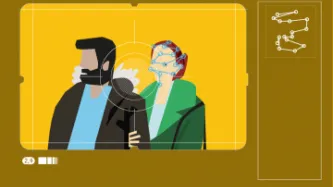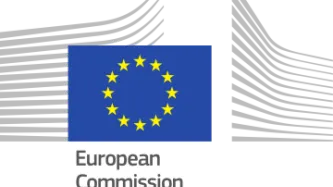Search
Content type: Examples
Liechtenstein is the first European country to use biometric electronic bracelets to implement a real time coronavirus tracking programme. The bracelet, which sends skin temperature, breathing, and pulse, among other metrics, for analysis in a Swiss lab, is being offered to 5% of the population. The country, which acted early to prevent the epidemic, plans to roll the bracelets out to the entire population by autumn.
Source: https://inews.co.uk/news/health/coronavirus-testing-latest-…
Content type: Examples
To help the UK's Department for Work and Pensions handle the more than half a million applications the department received in the last two weeks of March, the identity verification company Nomidio, a subsidiary of Post-Quantum, is offering its service free of charge. The service would enable a simple, server-based three-step verification process through a smartphone to help first-time users prove their identity.
Source: https://www.biometricupdate.com/202003/free-palm-and-face-biometrics-…
Content type: Examples
British biometric start-ups are helping the UK government create digital passports.
VST Enterprises is providing a biometrics-backed digital health care passport, V-COVID, to help critical NHS and emergency services workers get back to work; the passport will incorporate test results and be included in an app that can be scanned from two meters away. In combination, Patchwork Health, which provides NHS trusts with a digital platform and Truu, which provides a digital staff passport,…
Content type: Examples
In October 2018, British home secretary Sajid Javid apologised to more than 400 migrants, who included Gurkha soldiers and Afghans who had worked for the British armed forces, who were forced to provide DNA samples when applying to live and work in the UK. DNA samples are sometimes provided by applicants to prove their relationship to someone already in the UK, but are not supposed to be mandatory. An internal review indicated that more people than the initially estimated 449 had received DNA…
Content type: Long Read
(In order to click the hyperlinks in the explainer below, please download the pdf version at the bottom of the page).
Content type: Examples
In 2018 a report from the Royal United Services Institute found that UK police were testing automated facial recognition, crime location prediction, and decision-making systems but offering little transparency in evaluating them. An automated facial recognition system trialled by the South Wales Police incorrectly identified 2,279 of 2,470 potential matches. In London, where the Metropolitan Police used facial recognition systems at the Notting Hill Carnival, in 2017 the system was wrong 98% of…
Content type: Long Read
Image: Eric Jones
The UK government last week hosted hundreds of surveillance companies as it continues to try and identify “technology-based solutions” able to reconcile the need for controls at the Irish border with the need to avoid them.
The annual showcase conference of 'Security and Policing' brings together some of the most advanced security equipment with government agencies from around the world. It is off limits to the public and media.
This year’s event came as EU and UK…
Content type: Advocacy
Privacy International has responded to the European Commission’s consultation on the interoperability of EU information systems for borders and security.
The Commission is currently looking at ways in which various border control and policing EU databases and IT systems can be connected to share and exchange more data.
The plans raise a number of concerns as highlighted by Privacy International in our response. These relate to significant potential harms associated with…
Content type: News & Analysis
Big data consists mainly of data that is openly available, created and stored. It includes public sector data such as national health statistics, procurement and budgetary information, and transport and infrastructure data. While big data may carry benefits for development initiatives, it also carries serious risks, which are often ignored. In pursuit of the promised social benefits that big data may bring, it is critical that fundamental human rights and ethical values are not cast aside.…
Content type: News & Analysis
New technologies may hold great benefits for the developing world, but without strong legal frameworks ensuring that rights are adequately protected, they pose serious threats to populations they are supposed to empower.
This is never more evident than with the rapid and widespread implementation of biometric technology. Whilst concerns and challenges are seen in both developed and developing countries when it comes to biometrics, for the latter they are more acute due the absence of laws or…
Content type: News & Analysis
At the moment there is much anger about a UK Border Official who, according to the BBC, relaxed "identity checks on non-EU nationals" over the summer. This 'relaxation' then was claimed to have placed the UK at risk because names of visitors were not checked against 'watchlists'. This news is unsurprising in some respects, and quite shocking in others.
The controversy centres on the call to temporarily suspend checking the e-passports of individuals from outside of the EU…
Content type: News & Analysis
An international alliance of organisations and individuals from 27 countries has lodged a petition calling on the Council of Europe to start an indepth survey on the collection and storage of biometric data by member states.
European governments are increasingly demanding storage of biometric data (fingerprints and facial scans) from individuals. These include storage on contactless 'RFID' chips in passports and/or ID cards. Some are going even further by implementing…
Content type: News & Analysis
Two months ago, the UK Borders Agency began fingerprinting foreign children over six years old, from outside the European Economic Area and resident in Britain. At the time Jacqui Smith was congratulated for her tough line on issuing identity cards to foreign residents and no one, not even parliament, noticed that the biometric requirements applied to children of six. And parliament didn't know because it was never asked to approve the policy.
Nowhere in the world are you more powerless than…
Content type: News & Analysis
Privacy International's recent complaint to the UK Information Commissioner has threatened to bring to a halt an imminent plan to fingerprint all domestic and international passengers departing from Heathrow's Terminal 1 and Terminal 5, due to begin on March 27th. The British media is reporting that in response to PI's complaint, the Information Commissioner has advised that passengers should only accept fingerprinting "under protest" until our complaint is resolved.
The prospect of…
Content type: News & Analysis
The Criminal Justice and Public Order Act 1994 was the first serious expansion of the powers to take samples, particularly non-intimate samples – which included mouth swabs and saliva in addition to hair samples: both of which provide DNA information. Such samples could be taken without the consent of the individual if he is charged with a recordable[1] offence, a significant advance on the earlier requirement that the individual is charged with a 'serious arrestable offence'.
During the…
Content type: News & Analysis
Although DNA matching was first used to catch an offender in 1987, the Police and Criminal Evidence Act 1984 is instrumental in defining police treatment of suspects in the early stages of an investigation. Despite the fact that the Act has been amended on numerous occasions since its inception, analysis of the original legislation provides the starting point to map out the development and expansion of the circumstances in which samples containing DNA can be taken from individuals.
This early…
Content type: Report
This report investigates the probable effect of the proposed UK national Identity Card system on people who are marginalised, who suffer social disadvantage or exclusion, and those who are disabled. The work focuses on the biometrics element of the government’s proposals (specifically facial recognition, ngerprinting and iris scanning).
The Report provides a specific assessment of the recently published biometrics trial conducted by the UK Passport Service (UKPS), and compares these…
Content type: News & Analysis
In a move that mimics the U.S. fingerprinting policy under the VISIT programme, the European Commission has adopted a proposal for a regulation that would create a central database for all visa applicants fingerprints and photos. Regulation available on the Europa website.
In a somewhat positive turn, it is important to note that the retention period of this data is only five years, compared to 100 years in the U.S. Relevant excerpts include:
To ensure exact verification and…
Content type: News & Analysis
We the undersigned are calling on you to reject the 'Draft Council Regulation on standards for security features and biometrics in passports and travel documents issued by Member States'. This is an unnecessary and rushed policy that will have hazardous effects on Europeans' right to privacy. This policy process requires additional oversight, and the eventual systems established will require significant controls and a strong legal framework to ensure that this is a proportionate response to the…
Content type: News & Analysis
For the attention of Members and staff of the European Parliament,
I am writing to you on behalf of Privacy International, a London-based human rights group, to call on you to stop the implementation of biometric travel documents.
We at PI have been monitoring the biometric passport developments for three years. Most recently we organized an open letter to the International Civil Aviation Organization (ICAO) calling for clarification and modification to the plans for the biometric passport…















